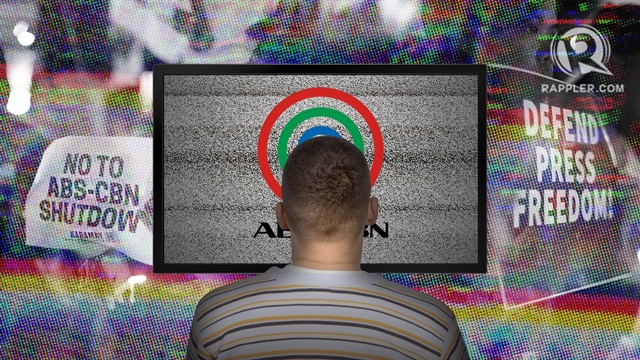

A serious sociopolitical conflict is developing over the Duterte regime’s campaign to take away the ABS-CBN franchise. The conditions are made for it: As the largest independent broadcast network, ABS-CBN simply has no place in President Duterte’s authoritarian designs.
It was similarly targeted before, and at the time it found itself absolutely helpless. The assault had been well-plotted and, with full military backing, was quick and decisive: Ferdinand Marcos imposed martial law, shut down the network and appropriated its facilities, and, in a crackdown on so-called oligarchs, imprisoned the first-born scion of the family that owned it (the family still owns it).
As it happens, Duterte idolizes Marcos and is a political ally of his heirs, who were among the major funders of his presidential campaign. “Martial law” and “oligarchs” are also a standard part of his intimidating vocabulary. Doubtless he will install himself dictator too once he feels confident he can pull it off. Not so confident just yet, he is relying on institutions he has managed to co-opt to do his bidding.
He has singled out ABS-CBN and taken it to court, as he did Rappler. Like Rappler, it is being harassed with suits alleging violations of tax and securities laws. But, as a state franchisee, it is further vulnerable to official harassment. In fact, it was taken straight to the Supreme Court. Rappler itself is battling it out in the trial courts, as the case should be in the normal course of things. It’s just Rappler’s luck that, set up as an online news site, it needed no franchise; otherwise the Duterte regime would have weaponized the franchising law against it too.
Dominated by justices appointed by Duterte and former President Gloria Arroyo, another political intimate of his, the Supreme Court has come through for him consistently. Apologists are at pains to deflect suspicions that he has a hand in the ABS-CBN case. Evidently he hasn’t gotten over his displeasure with the network for its failure to air one of his campaign advertisements. A credible reason for the failure was given – force majeure – and an apology also made, but, already President, Duterte would still and not seldom re-air the grievance and even publicly threaten to close ABS-CBN.
In question besides motives is the judicial route the solicitor general has chosen in prosecuting the case. The Supreme Court, by giving it due course, could be hijacking the franchising function of the legislature. Indeed, the court appears stepping in out of turn. The franchise does not expire till May, and a request for renewal is up for hearing in Congress.
But the more fundamental issue involves constitutional freedoms. Broadcast franchise regulation is a technical function; basically, it’s about assigning frequencies and keeping order on the radio band. To not renew a franchise, let alone to revoke it, couldn’t have been intended to form part of that function since it constitutes abridgment of press freedom.
But press freedom is not easily appreciated in the larger and practical context of Philippine democratic life – what with the public discourse dominated, thus confused, by all manner of self-interest. Even the divisions in Congress over the ABS-CBN franchise, something rare over a Duterte cause, scarcely have to do with democratic principles.
At any rate, relative to the ABS-CBN case, press freedom has not resonated widely enough. But things seem promising. A public that makes up a huge market for ABS-CBN has begun to turn out in protest, though not exactly for its right to know and the consequent ability afforded it to make informed choices, but for a much simpler and cheaper, and rather desperate, right – the right to be entertained.
One protest march I observed of these types had placards and streamers asserting freedom of expression, the mother freedom from which derives freedom of the press, which in turn serves the public’s right to know. But in conversations many marchers betrayed their more immediate escapist interest – they would not be deprived of television fare that lifts them even momentarily from the miseries of their much-deprived existence.
Surely, they are one sector no politician would like to make an enemy of. – Rappler.com